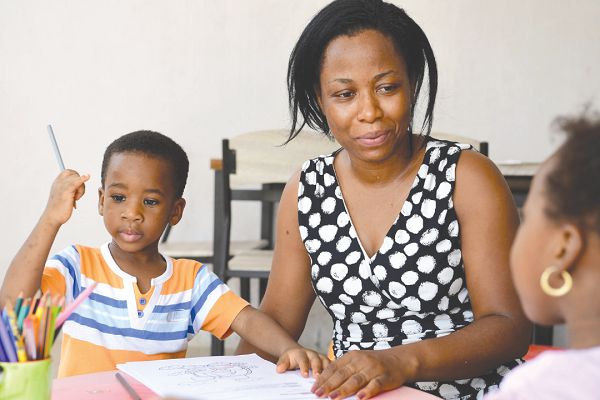
Supporting children with language difficulties
The holidays are here again.
Characterised with family reunions and religious activities, often, children with language difficulties do not receive enough support for language learning.
Advertisement
The impact of this is that, they often regress after making much progress with language skills before the break.
As parents busy themselves with the season’s activities, below are a few strategies to support your child’s language development:
• Spend time with your child
Although you are busy during these holidays, try and create some time each day to spend with your child. Interact with your child for at least five minutes.
This may be taking turns to kick a ball with your child or engaging in pretend-play with them (feeding a doll, putting the doll to sleep, preparing a pretend meal etc.)
Use language to talk about what is happening around you. Your child misses opportunities to develop their language if they are left to play alone all the time.
• Create opportunities for your child to make requests
Create opportunities for your child to use language by allowing them to make requests for water, food, the washroom etc.
Don’t fret yet! It is not about waiting for the child to say a word. If a child is not yet talking, it does not mean they are not expressing themselves.
So observe what your child does when they are hungry, thirsty and sleepy. If your child holds your hand to where their water bottle is, they are requesting for water.
It is a good opportunity to model the word ‘water’ for them before offering them their bottle. Do not always anticipate their needs and offer them without such opportunities to request first. Put things out of reach but visible to encourage requests and opportunities for you to model language.
• Give your child simple everyday instructions
To help further develop your child’s understanding, give them simple everyday instructions such as “Sit down”, “Give me the remote control”, “Bring your bottle”, etc.
If pointing to the keyword helps your child to understand the instruction better, do so.
Allow your child enough time after giving them an instruction; it is recommended to give up to ten seconds at least.
Some children need some time to make sense of what is said to them. Gradually, these will further develop their understanding.
Remember to always keep your language short and simple. Avoid long sentences and ask them to do one thing at a time as it may be difficult for them to follow too many instructions given at a go.
• Comment on what your child does
Commenting on what your child is doing helps in teaching them words around those activities.
For instance, during the ball activity, the child may learn words such as ‘throw’ ‘catch’, ‘ball’ etc. If you consistently comment on what you and the child are doing, the child benefits from learning new words.
The Writer is a Speech and Language Therapist/Clinical Tutor
University of Ghana
E-mail:[email protected]




